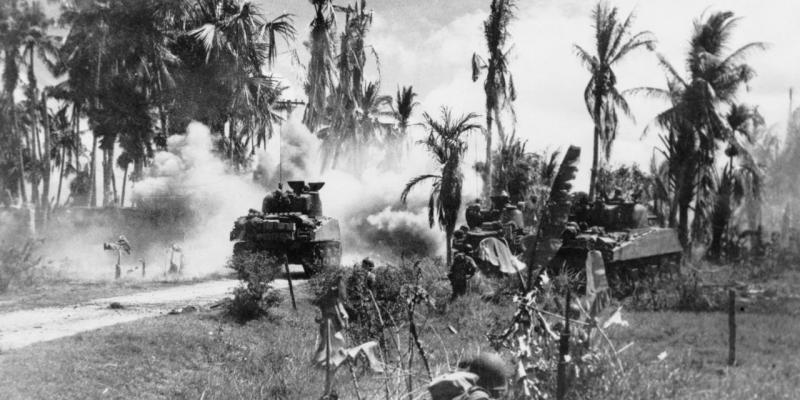Fiction: Revisiting Norman Mailer's 'The Naked and the Dead'
By: WSJ



About a decade after he had become famous for his bestselling first novel "The Naked and the Dead," Norman Mailer reflected, with some mournfulness, on his vertiginous ascent: "My farewell to an average man's experience was too abrupt; never again would I know, in the dreary way one usually knows such things, what it was like to work a dull job, or take orders from a man one hated. . . . I was prominent and empty, and I had to begin life again."
When we think of Mailer now, this is the intriguing, exasperating figure we likely remember: a big shot who spent his life struggling to fill the void of his own celebrity, whether it was with public stunts, personal scandals, intellectual controversies or, often almost peripherally, literary works of wildly varying quality and concentration. It's hard to imagine a world before Norman Mailer was Norman Mailer, culture pundit, mayoral candidate, wife-stabber, talk-show pugilist, Hemingway manque—when he was no more or less than a talented tyro who wanted to write a great book.
A reminder of this simpler time is one reason to return to “The Naked and the Dead,”perhaps as much as the novel’s enduring excellence. The latest reissue, appearing 75 years after it was first published and 100 years after Mailer’s birth, comes compliments of the Library of America. Edited by Mailer’s biographer J. Michael Lennon, the volume includes a selection of Mailer’s letters from 1945 and ’46, many of which he wrote to his then-wife, Beatrice Silverman, during his Army service in the invasion of the Philippines. The correspondence provides a remarkable glimpse at the experiences, the mixture of influences and most of all the youthful ambition that would make the book what it is.
What Mailer referred to in these letters as his “ridge novel” chronicles the American campaign on the fictional Pacific island of Anopopei, beginning with a beach landing and concluding with the ruthless “mopping up” operations against the last of the Japanese resistance. The chapters alternate between two military classes. First are the officers, led by the tactically brilliant and politically reactionary General Cummings. Second are the infantrymen of a platoon led by the sadistic Sergeant Croft, who take part in the campaign’s early skirmishes and later are sent on a grueling reconnaissance patrol over a high mountain pass and behind Japanese lines. The officers make the decisions that shape the story (though the X factor of dumb luck plays a pointedly crucial role in the climax), but it’s the foot soldiers who give “The Naked and the Dead” its bulk and stature, as Mailer takes pains to flesh out the character of each platoon member, using a narrative conceit called the Time Machine to evoke the contrasting backgrounds of the Appalachian farm boy, the Boston Irish Catholic, the Brooklyn Jew, the Mexican immigrant and so on.
Mailer borrowed promiscuously for this novel—the Time Machine is a direct theft of John Dos Passos, for instance, while his writing style owes more to the plainspoken realism of Theodore Dreiser and James T. Farrell—but with the motley ethnic makeup of the platoon he was aiming for an analog of the Pequod’s crew in “Moby-Dick,” with Sergeant Croft as Captain Ahab, driving his men to ever more punishing and dangerous missions. The gripping extended set pieces—in one the soldiers drag antitank guns through the jungle to the front lines, in another they carry a wounded man down a mountain on a makeshift gurney—derive their power not just from the extremity of physical torment they describe but from the shifting alliances and hatreds formed between the men.
That narrative power is tremendous and, it seems to me, undiminished by time. One might quibble over the excesses of “The Naked and the Dead,” but it’s undeniably effective as an immersive, bruising reading experience. This is where Mailer’s youthful vigor was important. A prize-winning Harvard graduate, he had the ego requisite to take his shot at the Great American Novel, but the war had also taught him humility and the value of grunt work. As a result, every paragraph in this long book feels intensely considered, packed to its limits with details and sensations. Nothing is padded or tossed off. You can call the style workmanlike, but who would complain about work this tireless and productive?
Not that it’s without problems, but these are easier to identify with the help of hindsight and seem less significant in themselves than as warnings of future enormities. Mailer was fascinated by the social organization of the military and he’s drawn to tentative generalizations about those dynamics. An ongoing tension he explores is the way soldiers are torn between helping each other and pulling rank to save their skin or get ahead. “The Army’s got me,” thinks a hard-bitten private named Red, maybe the novel’s fatalistic conscience. “It was the old trap. First they made you afraid, and then they let you sew on ribbons.”
The guilt and resentment they feel motor many of the finest scenes, but the conundrum becomes more abstract in the chapters involving General Cummings, who spends a lot of time explaining man’s urge for “omnipotence” and paraphrasing Nietzsche and Otto Spengler to his aide-de-camp Lieutenant Hearn, a conveniently liberal-minded foil. If these philosophical arguments seem comparatively stagey, they foreshadow the silly, posturing miscellanea that would distractedly occupy Mailer for many years after the success of “The Naked and the Dead” thrust him into stardom. The authoritarian personalities he had diagnosed in General Cummings and Sergeant Croft became bizarrely aspirational as he commenced upon the noisy, confused project of self-mythology. He all but stopped writing in the third person because he was the only character who still interested him. It was decades before he wrote anything half as good as his debut.
That debut was sometimes criticized for its pessimism, but rereading it in this anniversary edition left me with a different impression. Its drive, its doggedness and its inexhaustible curiosity exude a glow of idealism amid its darkness. An ambitious first novel is, by definition, an act of hope.




Mailer was once regarded as the heir to the Hemingway crown in America. He died on November 10, 2007.

Writer, WWII veteran, Harvard Graduate and always controversial.
The Book is:
Norman Mailer: The Naked and the Dead & Selected Letters 1945-1946